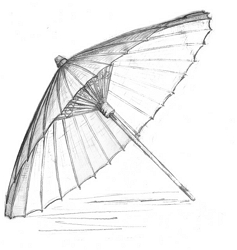Humans are probably the only species that engage in doing things that have no survival value or are even downright threatening. Singing out of tune, eating 10 slices of cake in a day, jumping out of an aeroplane with a parachute that has a slight chance of not opening, sporting a Mohawk and buying a Porsche.
Another thing more and more people are doing these days when they are in another part of town is visit gift shops. A gift shop is effectively a place that displays multifarious paraphernalia that people don’t actually need or will never ever need in their entire life. However, gift shops are sprouting everywhere and they seem to be increasing in their population. Every single town I have been to in the UK has at least one gift shop. The way things are going, scientists will soon have to think of ways to cull the gift shop population.
However, there is a perfectly good reason for their population increase. You see, a lot of the people who actually enter a gift shop are trying to solve a dilemma. They must buy one of those useless items as if their life depended on it. Actually their life does depend on it. If they don’t, their mother-in-law, mother, girlfriend, kindly yet nosy neighbour will sulk and won’t talk to them for days.
Even though they may say ‘you don’t need to bring me anything’ when they are waving you goodbye at the coach station or at the airport or at the side of your car, what they actually mean is ‘If you don’t bring me anything while you’re out gallivanting enjoying yourself, I’ll assume that you don’t think of me at all while you’re inspecting the architecture, nodding knowingly pretending to understand it.’ In reality, you don’t remember them at all while you’re doing those things. But you’re not supposed to let them know this.
Gift shops make money from clever people who get this unvoiced message. So, they would be able to sell things like T-shirts with the place name on, a bust of Mr Darcy, a £100 picture with paint smudges half-haphazardly placed all over the canvass, mugs sporting a glaring pink heart or laughing cows with udders on full display or some shiny objects that you wear around your neck to attract birds (or is it to repel them?). When they are changing hands, these items have an important role: to invoke ‘ooouu … lovely! That’s so pretty’ and a hug and a kiss. With their duty done once and for all, these objects sit on the mantelpiece collecting dust never to be fussed over again. Then they gradually wither from lack of love and attention before someone decides to put them out of their misery and take them to a charity shop where they repeat the same cycle. This time they will be gleefully picked up by someone having a hard time deciding on a Christmas present for their grandmother. The item will be gifted graciously and once again it’ll have to serve the purpose of inducing appreciation before it even thinks of sitting on another mantelpiece.
Gift shops make money from clever shrewd people who can actually read the mind of their friends and family and who thoroughly understand the eco-cycle of these useless yet important inanimate objects.
Unfortunately, gift shops don’t do very well if they come across a clueless person like me. I go in and look at these numerous pretty items, marvelling at the shiny scarves, making faces at the glaringly pink headbands, smelling their heart-shaped soap, thinking it won’t stay heart-shaped for long and stroking their extra-soft stuffed ducks feeling like a hypocrite because I like eating duck. I do remember my friends and family, but I don’t tend to see any items that they would like. When they say, ‘you don’t need to bring me anything, just enjoy yourself,’ that’s exactly what I do.
The survival of gift shops depends on not having too many clueless people like me walking the earth. Otherwise, gift shops would have gone extinct and where would local creative artists be without them? However, with their population on the rise these days, maybe we need more people like me to make sure they are kept in check.
